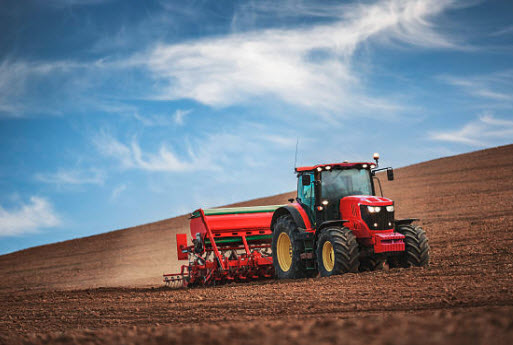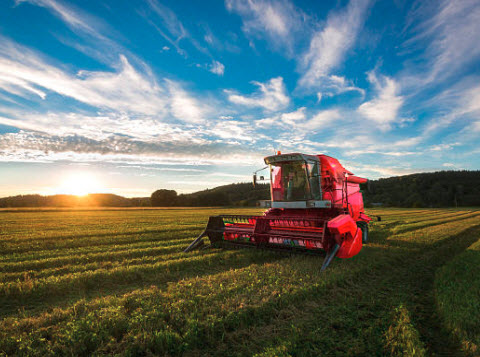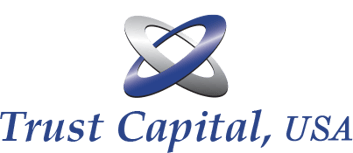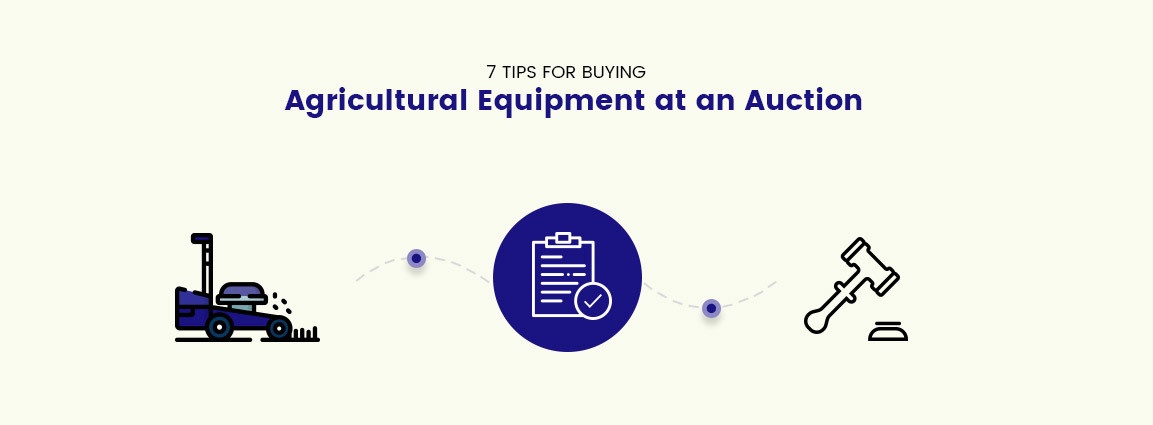Are you financially secured enough to buy or even replace your agricultural equipment with cash?
It’s inevitable for agricultural business and farm owners to face unexpected challenges in their businesses. It can be broken machinery, bad harvest or even insufficient cash flow to support the expenses of your daily operations.
Out of all the potential problems, the most common challenge of agricultural businesses is financing their equipment.
If that is one of your problems too, then this blog post I’m going to give you some tips on how to buy and lease farm equipment at an auction, and also how you can use agricultural equipment financing to lower your taxable income.

Buying Agriculture Equipment at an Auction
Being in an agricultural business field, owners need equipment that can keep up with their year-round operation. But when it comes to buying equipment I want to help you. That includes helping you learn more about agricultural equipment financing and how it can help support your business.
You shouldn’t hesitate to buy your equipment just because you’re low on cash. Otherwise it can affect your business’ financial status. That’s where agricultural equipment financing can help.
But first, let us understand what agricultural equipment leasing is all about.
What Is Agricultural Equipment Financing?
Equipment financing revolves on any method that can extend business assets to acquire new or used equipment. It could be in the form of getting loans, selling old equipment in exchange for new and better ones, and much more.
This type of financing can provide the necessary funds you need to secure a purchase, especially if it is for the needed capital equipment for the agricultural business.
Equipment leasing companies will usually offer you a $1 buy out lease, TRAC Lease, sales contract agreement or an equipment finance agreement is very common. Terms from 12 - 60 months is common for used equipment financing and with terms up to 84 months on brand new equipment.
Why Use Agricultural Equipment Financing
Financing for business owners is very common. Having a business that requires heavy equipment to continue daily operation is all the more reason to consider equipment financing.
If your money is low and you want to purchase some agricultural equipment, you’ll end up hurting your business’ cash flow. With that said, it is without doubt that agricultural equipment financing is really beneficial in terms of financial security for your business.
Here are some of the advantages of agricultural equipment financing:
1. You’ll Have An Operating Line In Check
Due to the agricultural crop commodity prices, a farmer can only depend on subsidized agricultural lending. If, by any chance, you suddenly noticed that one of your equipment badly needs replacement, your operating line gets affected. It can even lead to a costly purchase that can affect overall business operation.
Although commodity prices frequently fluctuate, it won’t affect your ability to upgrade your equipment through financing. You can then be assured that your operating line can remain untouched.
2. You Can Finance New & Used Agricultural Equipment
Equipment obsolescence is inevitable, but it also shouldn’t be a problem for you. Although purchasing new equipment is the most common option to eradicate old ones, your operating line could be negatively affected.
Acquiring new equipment is costly and can be risky to your business once your operating line is disrupted.
With agricultural equipment financing, you’re ensured to have obsolescence hedge for your equipment. You can even get to keep your expenses at a minimum with fixed monthly payments up to 84 months.
Use our farm equipment loan calculator to calculate how much your agricultural equipment leasing payments could be and use our equipment finance calculator to calculate how much farm equipment you can afford to lease based on your monthly budget.
3. More Cash for Unexpected Expenses
It isn’t uncommon for business owners to face other expenditures.
The same goes with agricultural business; unexpected expenses will always come, like an equipment that unfortunately broke and can no longer be fixed. Usually, you need to replace it as soon as possible so it would not affect your business operation.
However, fixing or replacing the broken equipment means that you’ll need to let some of your cash go. Having heavy equipment financing can keep your operating lines in check and even cover expenses you’d least expect.
4. Lowers Your Tax Bill
Having an agricultural business is hard. Business owners must work all year round to continue the cash flow.
All those work and a bit of luck can even give them a banner year, but every business will still face a taxman on their doorstep.
Financing can help you lower your overall owed taxes at year’s end. You’ll have options like a Fair Market Value (FMV) lease and a $1 buyout lease.
An FMV lease is an operating lease. You’ll have the option of buying the equipment at a negotiated fair market rate, return the equipment or use it at a reduced rental. You'll be able to write off 100% of your payments as a rental expense on your taxes.
On the other hand, $1 buyout lease is a capital lease where you can own the equipment. The lease essentially acts as a loan, and you’ll have 100% financing and typically a zero down payment to help you preserve cash. You can utilize tax savings from section 179 with a $1 buy out lease.
5. Saves Your Pocket Money
If you think you need to save money to pay upfront for a financing, then think again. An agricultural equipment financing does not require its applicants any down payment. Some equipment financing companies offer no payments for three months or $99 for 6 months. You can use the money you saved for other future expenses.

7 Tips When Buying Agricultural Equipment at Auctions
With financing in hand, you can now buy the equipment you want and need.
But you can’t just dive in and enjoy the heat of the moment during an auction. Otherwise you might end up wasting the funds you just got with your agricultural equipment financing approval.
So here are tips that you’ll need to remember when you buy agricultural equipment at auctions:
Tip 1: Do Some Research
The first and foremost tip that you should always remember is to do your own research, as it can help you prepare beforehand. This can help you answer the most basic questions like...
- What do I want to buy?
- What is it worth, new versus used?
- What is the quality, price and brand’s reputation like?
Tip 2: Consider Other Available Auctions
If you’re aiming to buy used machinery, especially at farm auctions, know that they go for the highest price. Premiums for a used machinery can get big at farm auctions. If you face such crisis, it’s time to look for other types of auctions.
Other types of auctions include consignment auctions, dealer auctions, online auctions, and more. Consignment auctions are where items are consigned to the auction by third parties (the auction company doesn’t own the items).
For dealer auctions, they are by and large auctions that are open only to the public. Those who possess a dealer's license are restricted to join the auction.
Tip 3: Understand the Rhythm of the Market
If you’re buying used machinery, timing is of utmost essence. The first and fourth quarters of the year have the highest prices for used machinery at auctions.
It’s wiser to buy during the second quarter of the year, since used machinery prices are softer during that time.
Tip 4: Get the Right Aged Agricultural Equipment
Buying old equipment needs guidance, especially when it comes to the age of the machine.
Aim to buy those that are just around three to eight years old.
Going more than that might decrease the efficiency of the machinery, not to mention that the market sees machines older than 10 years as less valuable.
Tip 5: Check for Any Warranty Information
Agricultural equipment will have a warranty that can cover certain amounts of usage hours.
If you plan to purchase a fairly new agricultural equipment, there’s a bigger chance that it is still under warranty. Warranties can save you from more expenses, especially if the equipment needs some tweaks and replacements.
Tip 6: Don’t Let Your Emotions Control You
Being a part of live auctions can get your emotions mixed up. Live auctions always have high energy, but you have to keep your emotions in control.
Focus on what you aimed for from the start: the true value of the machinery. Know the agricultural equipment’s worth and stay grounded at that level.
Tip 7: Maintain the Agricultural Equipment’s Good Condition
Lastly, once you have bought your agricultural equipment, make sure you take care of it.
Taking care of your equipment can help extend its life. With a prolonged life, your purchase will be more worth it, allowing you to keep the equipment for a longer period of time.
Final Thoughts on Using Agricultural Equipment Financing to Buy at an Auction
As an agricultural business owner, you work all year round to maintain your business cash flow. Having updated equipment can help in the daily operations of the business, but a new equipment can be costly, and buying one might put your operating line at risk.
To avoid any business disruptions and problems, and to have the equipment that you want, financing is needed.
Use our ag equipment loan calculator to calculate how much your agricultural equipment leasing payments could be and use our equipment loan calculator to calculate how much farm equipment you can afford to lease based on your monthly budget.
Agricultural equipment financing can help you avoid the risks of spending a huge amount of money that can hurt your operating line. You get to buy the equipment that you want, and you can even manage any unexpected expenses your business will encounter.
Be sure to follow the tips I have provided in this blog post the next time you go to auction.
To know more about agricultural equipment financing, contact Trust Capital USA at (866) 458-4777.


 (866) 458-4777
(866) 458-4777

 Paul Kendall
Paul Kendall





